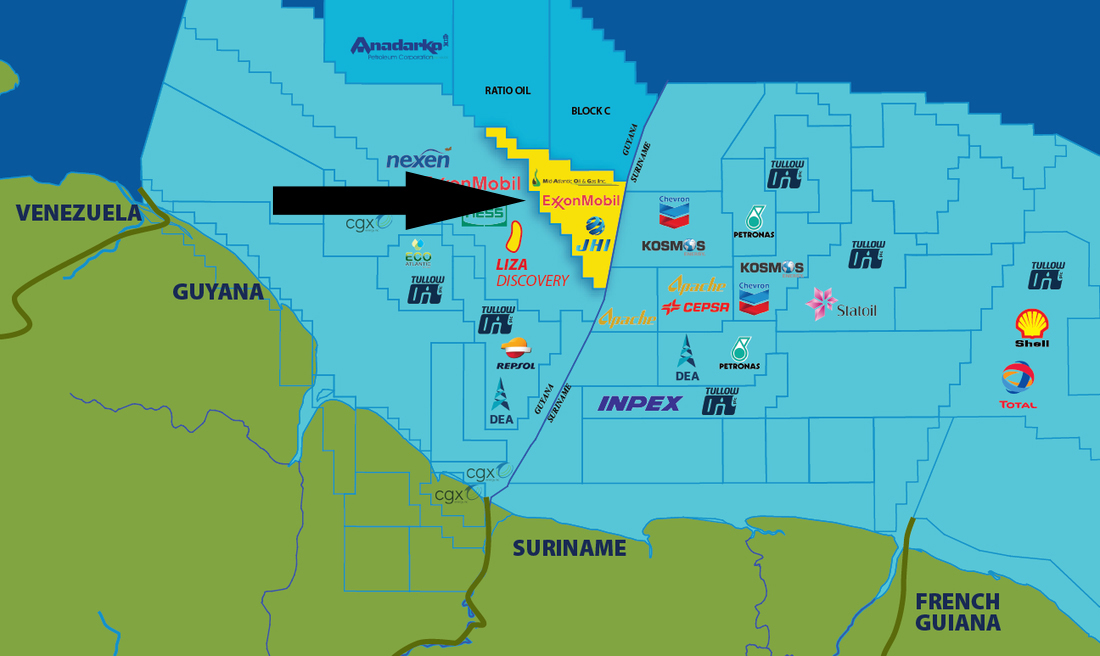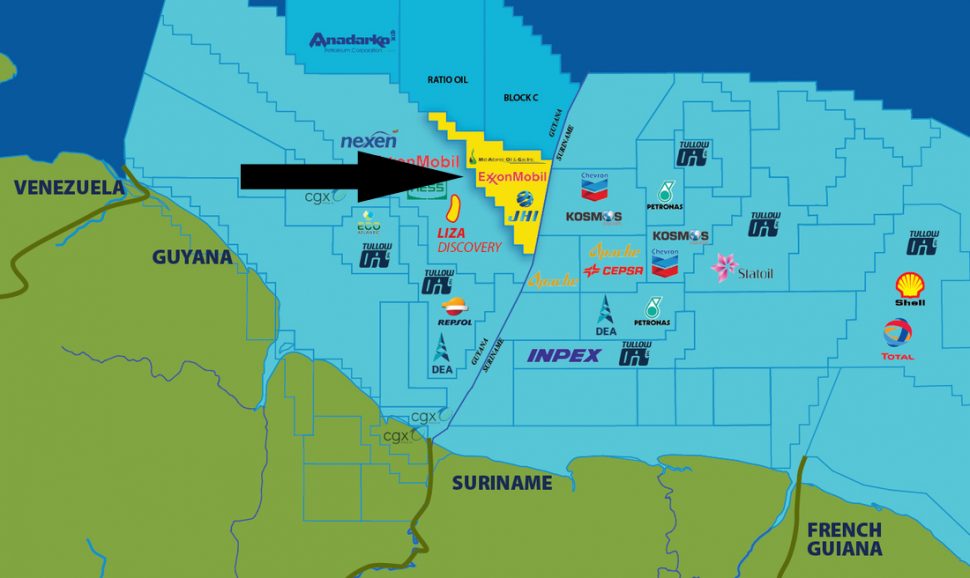Specific information from several “whistle-blowers” is what sparked an investigation close to a year ago into the issuance of about 20 oil exploration licences here, and with only a desk review done thus far, the State Assets Recovery Agency (SARA) has seen no evidence of irregularities yet.
“We have a lot of players [and] what is causing the concern is that some of the players don’t have any capital or skills in the area for which they have licences so that raises a red flag. Why did they get these licences?” SARA Director, Professor Clive Thomas, told the Sunday Stabroek in an interview. He said that once evidence of wrongdoing is found, civil recovery proceedings could be filed in the courts before year end.
Thomas spoke to the Sunday Stabroek extensively about the matter, including the agency’s intention to collaborate with the Department of Energy (DoE) and plans to establish a section at SARA to deal specifically with oil investigations.
It was the New York-headquartered Bloomberg News that made public the investigation into the oil blocks awards following an interview with Thomas earlier this month.
“We’re investigating the issuance of the licences, for example, and the various blocks… We’re building up a case. This is an area of investigation into how the blocks were allocated and the decisions that were made,” Thomas was quoted as saying in the May 22nd article, which had reported that aside from the Stabroek, Kaieteur and Canje blocks which ExxonMobil has control over, the Orinduik block which Tullow Oil Plc signed up to explore in 2016, will also be investigated.
 Speaking with this newspaper at his Main Street office on Friday, Thomas disclosed that a “mix of several things” led to the commencement of the oil blocks awards investigation. He recounted that some individuals had called and written to the agency indicating that there should be a serious focus on this topic. Some of them, he related, had specific information and acted “more or less as whistle-blowers and that started our investigation.”
Speaking with this newspaper at his Main Street office on Friday, Thomas disclosed that a “mix of several things” led to the commencement of the oil blocks awards investigation. He recounted that some individuals had called and written to the agency indicating that there should be a serious focus on this topic. Some of them, he related, had specific information and acted “more or less as whistle-blowers and that started our investigation.”
Pointing out that he and his staff are now in the process of collecting data, he explained that the initial concern was with the Kaieteur and Canje blocks.
Stabroek News had previously reported that days before the May 11th, 2015 general and regional elections, in which the PPP/C was voted out after over two decades in power, then President Donald Ramotar had signed a contract with JHI and Associates (Guyana) Inc for the Canje Block. Mid-Atlantic Oil & Gas Inc and ExxonMobil, which is Block Operator, also have participating interests in the Canje Block. In February of last year, French oil major Total announced that it had bought a 35% working interest in the Canje Block, in an agreement it signed with both JHI and Mid-Atlantic Oil & Gas Inc. The two companies, it said, will retain a shared 30% interest alongside operator ExxonMobil.
Ramotar told Stabroek News recently that the then Minister of Natural Resources Robert Persaud had made a case for JHI and Mid-Atlantic Oil and Gas Inc.
Just prior to the 2015 elections, Ramotar had also signed an agreement with Ratio Energy Limited and Ratio Guyana Limited for the Kaieteur Block. He has said that his award of contracts to the companies shortly before the elections should not be seen as questionable.
Thomas told the Sunday Stabroek that the individuals who contacted the agency, did not raise concerns about the ExxonMobil-controlled Stabroek block. He said that this may have been because the award of that licence was decided about a decade before 2015. The Stabroek Block was initially awarded in 1999 and its Production Sharing Agreement renegotiated in 2016.
Thorough job
“But to be able to do a thorough job, we had to look at all the licences that have been issued and we are trying to do that without any prejudice and without any presumption that unlawful conduct has occurred so we are investigating and keeping an open mind. I say that because we don’t want to impact the reputations of the firms negatively until we have information that is deserving of that,” he assured.
He stressed that as of now, there is no specific evidence of irregularities being committed and reiterated that every block that was given out will be investigated.
The companies that have blocks in the deep water area, offshore Guyana, are: Repsol and Tullow Oil (the Kanuku Block); Tullow (the Orinduik Block); Anadarko (the Roraima Block); Ratio Oil (the Kaieteur Block); ExxonMobil, CNOOC Nexen and Hess (the Stabroek Block); ExxonMobil, Mid Atlantic and JHI (the Canje Block); CGX (the Demerara and Corentyne blocks); ON Energy; and Nabi. All were granted contracts during the PPP/C’s time in office.
According to Thomas, there are several companies that have control of those blocks. He said that SARA has not reached the stage of speaking directly to the companies who were awarded exploration licences. “Now we are doing primarily desk research…,” he said adding that they have material to work with and have already spoken to the local people who have a role in the sector, for example, the DoE.
Thomas insists that there is “substantial” enough information to continue the investigation. “You see the big problem is most people in Guyana confuse information with evidence. There is a lot of information out there…but to get evidence that there was something illegal going on, that’s the difficult step…and that requires a lot of investigative effort,” he added.
He informed Sunday Stabroek that some companies, in relation to their exploration licences, have allowed other companies to “farm in.”
The SARA Head also highlighted that the award of the oil blocks is a significant matter and involved billions of US dollars. “They are big cases with international reach. So these are significant cases and we have to take it one at a time,” he said.
Thomas emphasised that even though there may be a criminal side of the matters, that aspect does not fall under the remit of SARA. He explained though that there may be violation of laws in other countries because, for example, the securities commission in the US bars companies from undertaking certain types of activities in other countries.
SARA’s oil section
Meantime, Thomas informed that investigations in the oil and gas sector are expected and, as such, the agency is looking to acquire the skills necessary for these probes.
“This is more or less inevitable because that would be a dominant sector of the economy and therefore we expect a lot of unlawful conduct…within that sector and for that reason alone, we are preparing ourselves for lots of investigative work in that sector,” he said.
He reminded that such investigative work calls for highly specialised skills, “some of which we have to acquire.” He said that as of now, the agency has an idea of what it has to do.
The section to deal with oil sector investigations is being formed, he assured. “We already have our two policy analysts,” he said, adding that Eric Phillips, his special assistant, is spearheading that work.
Asked what else is needed, Thomas singled out more staffing and resources. He informed that earlier on Friday, the agency met with DoE officials to discuss the inaugural oil investigation and it is expected that the two would be collaborating on this matter going forward.
He said that previously, the agency had expressed its opinion to the DoE that there is a need for a Memorandum of Understanding (MoU) similar to what exists for several other government departments. Explaining the rationale behind reaching out to the DoE, he reminded that it has responsibility for energy, particularly oil and gas and therefore, “if we are to get information we need to work with them.”
That MoU will be sent to the Department early next week and from there, the relationship will go forward. There are similar MoUs with about a dozen other agencies including the Guyana Revenue Authority and Financial Intelligence Unit.
Further, Thomas related that in addition to SARA’s two in-house lawyers, the agency also gets assistance from an external advisor and local attorneys such as Nigel Hughes and Maxwell Edwards. Edwards will work along with the agency for an initial six months. “We are building our resources slowly but we are not flush with resources…but we are trying to build it up in a slow, methodical way,” he said.
SARA is responsible for the civil recovery of stolen state assets whether money, land, buildings or vehicles.





